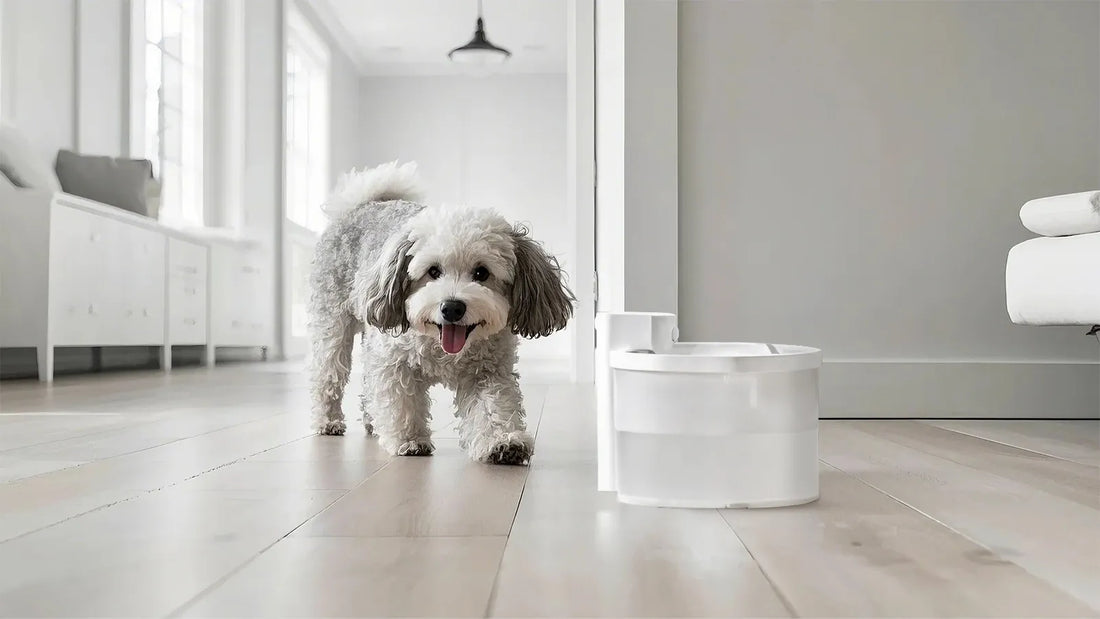Have you ever given your dog a thorough bath, only to find that they still smell bad? It can be frustrating and confusing, especially when you’ve used the best shampoos and followed all the right steps. The truth is, there are several reasons why your dog might still have an unpleasant odor even after a bath. Understanding these causes can help you take the necessary steps to keep your furry friend smelling fresh and clean.
Common Causes of Persistent Dog Odor
One of the most common reasons for a lingering bad smell is that the bath didn’t address the root cause of the odor. Dogs can develop smells due to various factors, including skin conditions, ear infections, and even their diet. Let’s explore some of these causes in detail.
Skin Infections and Allergies
Skin infections, such as bacterial or fungal infections, can cause a persistent bad smell. These infections often result from underlying issues like allergies, which can make your dog’s skin more susceptible to bacteria and yeast. If your dog has red, irritated skin or is scratching excessively, it might be time to consult a veterinarian.
Ear Infections
Ear infections are another common culprit. Dogs with floppy ears are particularly prone to these infections, which can produce a foul odor. If your dog is shaking their head or scratching their ears frequently, it’s worth checking for signs of infection.
Anal Gland Issues
Anal glands can also be a source of bad odor. These small glands located near your dog’s anus can become impacted or infected, leading to a strong, fishy smell. If your dog is scooting their bottom on the floor or licking the area excessively, it might indicate an issue with their anal glands.
Dental Problems
Bad breath can contribute to your dog’s overall smell. Dental issues like gum disease or tooth decay can cause a persistent foul odor. Regular dental care, including brushing your dog’s teeth and providing dental chews, can help mitigate this problem.
Diet and Digestive Issues
What your dog eats can also affect their smell. Certain foods can lead to bad breath or even body odor. Additionally, digestive issues like flatulence can contribute to an unpleasant smell. Ensuring your dog has a balanced diet and addressing any digestive problems can help reduce odor.
Environmental Factors
Sometimes, the environment your dog spends time in can contribute to their smell. Rolling in dirt, grass, or other substances can leave a lingering odor. Additionally, if your dog spends a lot of time in a damp or dirty area, they might pick up smells from their surroundings.
How to Address Persistent Dog Odor
Now that we’ve identified some of the common causes of persistent dog odor, let’s discuss how you can address these issues effectively.
Regular Grooming
Regular grooming is essential for keeping your dog clean and odor-free. This includes brushing their coat to remove dirt and loose hair, as well as bathing them with a suitable shampoo. However, be cautious not to over-bathe your dog, as this can strip their skin of natural oils and lead to dryness and irritation.
Check for Underlying Health Issues
If your dog’s odor persists despite regular grooming, it’s important to check for underlying health issues. A visit to the veterinarian can help identify any infections, allergies, or other medical conditions that might be causing the smell.
Clean Their Ears
Regular ear cleaning can help prevent infections and reduce odor. Use a vet-recommended ear cleaner and gently wipe the inside of your dog’s ears with a cotton ball or soft cloth. Avoid using cotton swabs, as they can push debris further into the ear canal.
Express Anal Glands
If your dog has issues with their anal glands, it might be necessary to have them expressed. This can be done by a veterinarian or a professional groomer. Regular expression of the anal glands can help prevent impaction and infection.
Maintain Dental Hygiene
Regular dental care is crucial for preventing bad breath and maintaining overall health. Brush your dog’s teeth regularly with a dog-specific toothpaste, and provide dental chews or toys to help keep their teeth clean.
Monitor Their Diet
Pay attention to your dog’s diet and ensure they are eating high-quality food. Avoid giving them table scraps or foods that can cause digestive issues. If you suspect that their diet is contributing to their odor, consider consulting a veterinarian for dietary recommendations.
Keep Their Environment Clean
Ensure that your dog’s living environment is clean and dry. Regularly wash their bedding, clean their toys, and keep their play areas free from dirt and debris. This can help reduce the chances of your dog picking up unpleasant smells from their surroundings.
When to Seek Professional Help
If you’ve tried all the above steps and your dog’s odor persists, it might be time to seek professional help. A veterinarian can conduct a thorough examination to identify any underlying health issues that might be causing the smell. They can also provide specific treatments or recommendations based on your dog’s individual needs.
Persistent dog odor can be a sign of a more serious health issue, so it’s important not to ignore it. Early detection and treatment can help prevent complications and ensure your dog stays healthy and happy.
Understanding why your dog smells bad even after a bath is the first step toward addressing the issue. By identifying the root cause and taking appropriate action, you can help your furry friend stay fresh and clean. Remember, regular grooming, proper hygiene, and a healthy diet are key to keeping your dog smelling great. If you’re ever in doubt, don’t hesitate to consult a veterinarian for professional advice. Your dog’s health and well-being are worth the effort!













